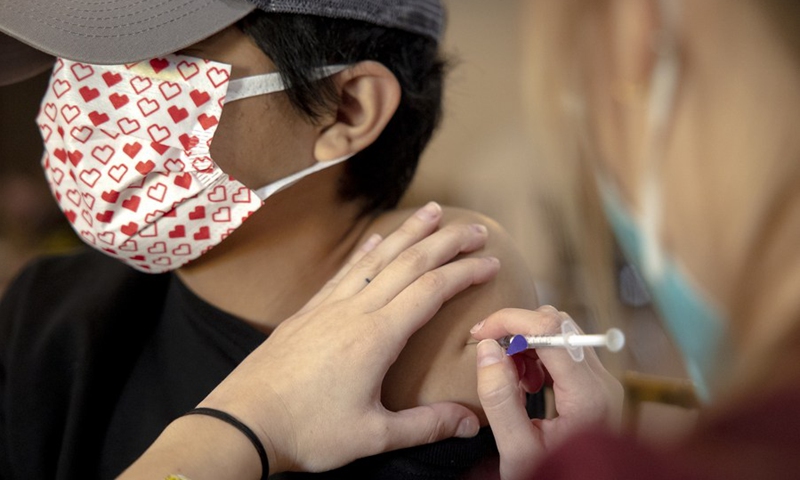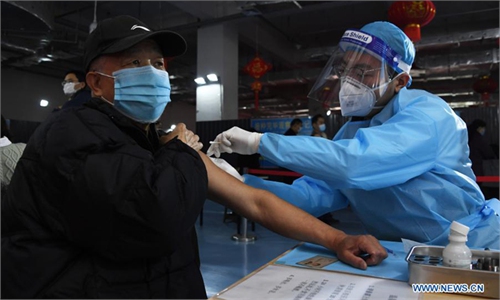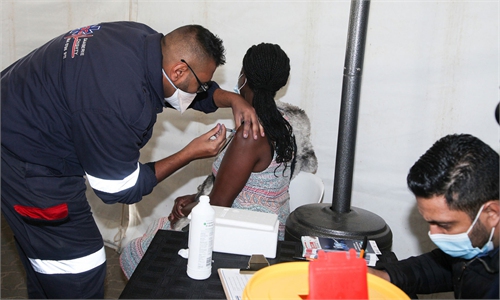China releases its first autonomous intelligent robot for needle-free vaccine injection

A man receives a dose of COVID-19 vaccine at a vaccine clinic in San Antonio, Texas, the United States, Jan. 9, 2022.(Photo: Xinhua)
Tongji University has released the first autonomous robot for needle-free vaccinations in China, which is at the forefront of the global trend of needle-free injection technology, developers said.
Qi Peng, lead professor of the R&D team of Tonji University, told the Global Times on Monday the robot can automatically identify the most suitable injection location on the human body by using a cloud camera to photograph the body through the 3D model recognition algorithm.
Qi said that the robot, which was named Houyi after a mythological Chinese archer, can administer vaccines with high efficacy while preventing cross infection.
According to Qi, the robot presses a disposable tube with medicine on the position for injection and the recipient does not feel any pain.
The medicine then is quickly injected into the human body in a high pressure water jet that comes out from the extremely thin nozzle of the tube, according to Qi.
Needle-free vaccines are already in use in some countries for COVID-19 vaccination. However, such robots are trailblazers in a global trend and China is a pioneer in this area, Qi mentioned.
In August, 2021, Zydus Cadila in India announced that the company has received the Emergency Use Authorization from the Drug Controller General of India for ZyCoV-D the world's first Plasmid DNA Vaccine for COVID-19.
Some labs in Italy have also been using needle-free vaccination for COVID-19.
In November 2021, a Canadian company Cobionix announced that they had developed the world's first vaccine-injecting robot that can administer vaccines in an autonomous, painless and needle-free manner.
"Needle-free injections have various advantages compared with needle injections. For example, it is safe, friendly to people with belonephobia and does not lead to any risks of being scratched by needles," Qi said.
It can also enhance immunity response as it distributes the vaccine under the skin or in the muscle, thus increasing the contact area between vaccines and skin or muscles, according to Qi.
In addition, Qi said that he is also engaging in cooperation talks with some vaccine manufactures but the method would require one to two years of clinical trials before being put into practical use.
Qi said that the robot is suitable for rapid and continuous injection. The drug injection can be completed within half a second, with the accuracy reaching 0.01milliliters, which can be applied to different vaccine requirements for injection dose.
It also has an injection depth adjustment function, which can be applied to different kinds of vaccines injected subcutaneously or intramuscularly, Qi said.
According to the professor, in the future, the robot can be used in hospitals or community clinics, as well as mobile vaccination vehicles, increasing the efficiency of vaccine injection.
Despite the huge potential of robots in healthcare, the needle-free vaccine injection robot is still at a prototype stage, and its clinical safety and effectiveness need to be verified through controlled trials.
Qi said that the team will conduct further clinical validation to bring the new product to the market, noting that in the future, medical robots will become an indispensable item of equipment for healthcare workers, reducing the burden on medical staff.



